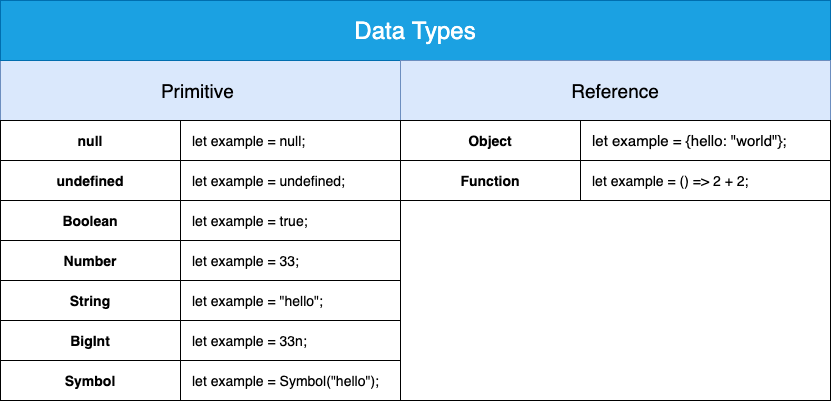A variable in JavaScript can be defined using three different keywords, let, var and const, or automatically, which is a bad practice.
To declare a variable automatically, one could just assign a value to it. Because JavaScript is loosely typed, it will automatically assign a data type to it.

x = "Hello world!";
console.log(x);Using var
The var keyword was the original way of declaring variables until 2015, where the other keywords were introduced.
It’s not a good practice to use it nowadays, and should be only used when developing for older browsers and applications.
var x = "This is a var variable. Bad practice!!";
console.log(x);Using let and const
For most use cases, const should be always preferred. It creates an immutable variable, meaning it’s value cannot be changed after the definition.
const x = "Constant";
x = 1; // Returns an TypeError.For cases where the variable will be reassigned, we use the let keyword. A variable declared with the let keyword can be reassigned normally, to any other type.
let x = "Mutable variable";
x = 1;
console.log(x);Declaring undefined variables
If declaring a variable using the let keyword without assigning a value to it, it creates an undefined variable, which is a variable that don’t have any value.
Undefined vs null
An undefined variable is not the same as a variable assigned to null. Each one returns different values.
For example:
let x;
console.log(x); // Returns undefined.
x = null;
console.log(x); // Returns null.